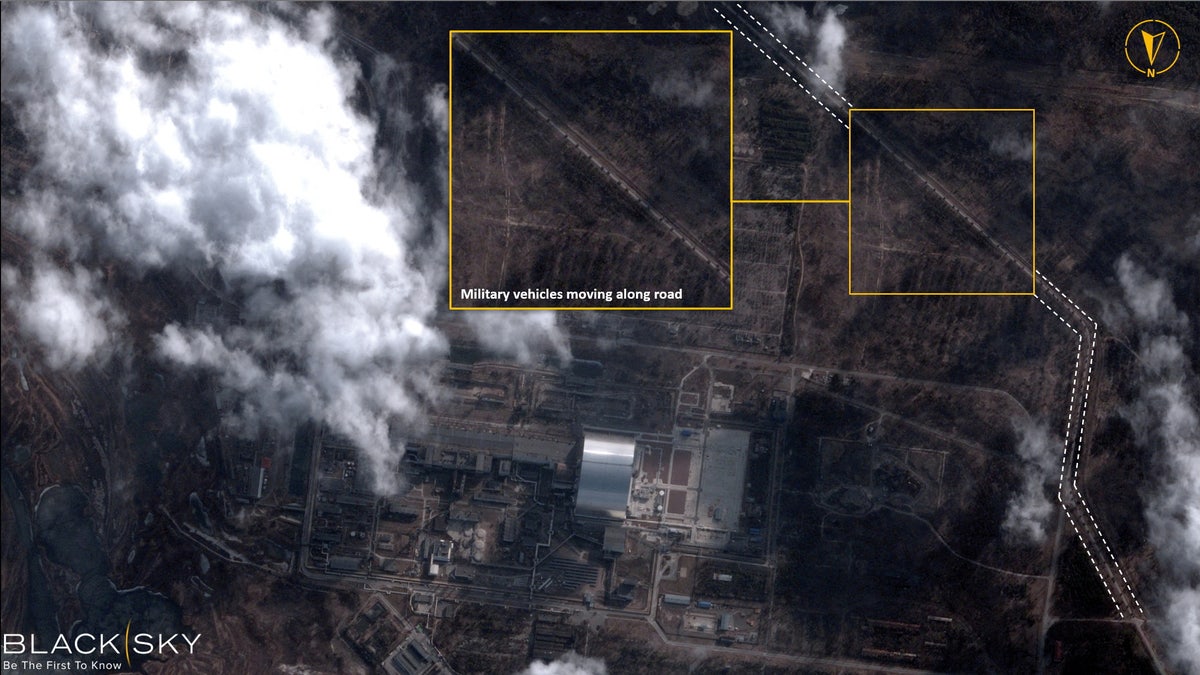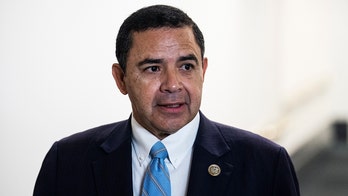Nuclear Energy Institute CEO on fear surrounding Ukraine power plants
Maria Korsnick talks to Fox News Digital at the CERAWeek by S&P Global energy conference
HOUSTON – U.S. nuclear experts on Wednesday said people should be aware of the chance for nuclear disaster amid Russia's invasion of Ukraine, but that one isn't necessarily likely, even as Chernobyl lost power and the Zaporizhzhia plant is also under Russian control.
"People should be mindful but not fearful," Oregon State nuclear science and engineering professor Kathryn A. Higley told reporters at the CERAWeek by S&P Global energy conference in Houston.
"I mean, we don't have any release going on," Higley continued. "And folks also need to be aware that after Chernobyl, the European Union created a pretty robust data monitoring and sharing network to be able to address radioactive releases from any facilities across Europe."
Higley made the comments at a press conference organized by the Nuclear Energy Institute (NEI), a group that promotes the use and expansion of nuclear energy globally, but particularly in the U.S. She was joined by NEI president and CEO Maria Korsnick and senior vice president for policy development and public affairs John Kotek.

A satellite image with overlaid graphics shows military vehicles alongside Chernobyl Nuclear Power Plant, in Chernobyl, Ukraine, Feb. 25, 2022. (BlackSky/Handout via REUTERS)
Kotek and Korsnick emphasized that the design of Ukraine's several nuclear power plants is much safer than the design of Chernobyl. A reactor explosion at the Chernobyl plant in 1986 caused the worst nuclear disaster in world history.
Among the plants with a safer design is Zaporizhzhia, which is currently under control of Russian soldiers while it continues to be run by Ukrainian specialists. The plant was shelled by Russians last week.

A fire is seen at the Zaporizhzhia nuclear plant after it was attacked by Russian forces early on March 4, 2022. (Press Service of National Nuclear Energy Generation Company Energoatom via AP)
RUSSIA INVADES UKRAINE: LIVE UPDATES
Korsnick said there's information indicating Russian soldiers are allowing Ukrainian operators to change shifts at the plant, which is a "healthy" sign.
The NEI experts also said it's unlikely the power loss at Chernobyl will present a near-term threat because the fuel there is so old it may not be hot enough to cause significant problems.
"At Chernobyl… the last reactor was shut down in the year 2000. So the spent fuel that's on site there has had 20 plus years to cool," Kotek said. "I can point to a statement from the IAEA related to this just earlier today. They said that heat load of spent fuel storage pool and the volume of cooling water at the Chernobyl nuclear power plant is sufficient for effective heat removal without the need for electrical supply."
The loss of power at Chernobyl is the third major incident that caused international nuclear fears to spike during the Russian invasion of Ukraine. The first was the initial fighting between Russian and Ukrainian forces at Chernobyl and the second was the shelling of Zaporizhzhia.
CLICK HERE TO GET THE FOX NEWS APP
Ukrainian foreign minister Dmytro Kuleba said Wednesday the loss of power to Chernobyl may make "radiation leaks imminent," despite the reassurances from the NEI and International Atomic Energy Agency (IAEA) experts.
International leaders strongly rebuked Russian President Vladimir Putin for flirting with such potential nuclear disasters, in addition to condemning him for the invasion of Ukraine in and of itself.
Russian forces Wednesday continued to attack Ukrainian civilians, including by bombing a children's hospital in Mariupol. More than 2 million refugees are estimated to have fled the country, according to the United Nations High Commissioner for Refugees.
U.S. officials estimate more than 3,000 Russian soldiers have been killed in Ukraine so far.
Fox News' Stephanie Pagones and Andrew Murray contributed to this report.






